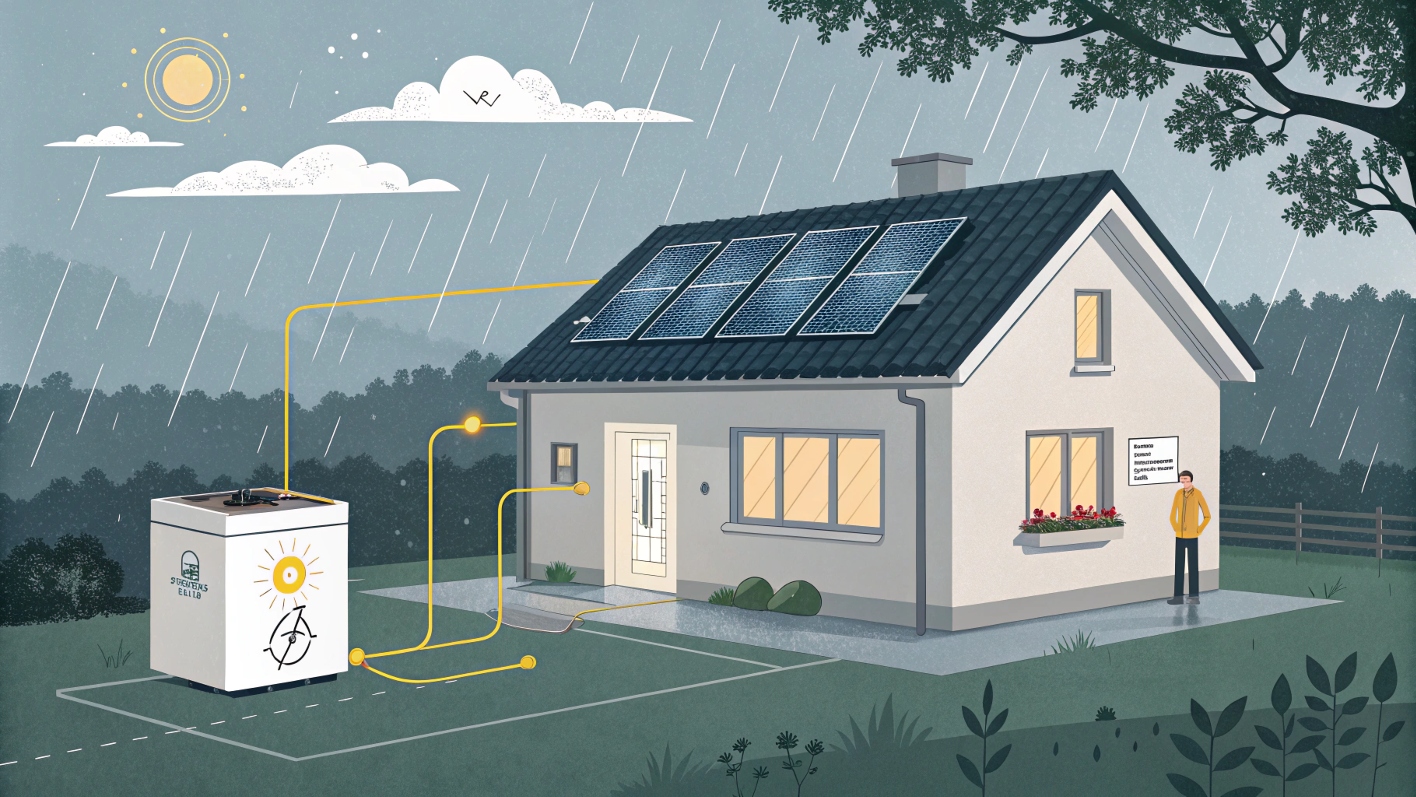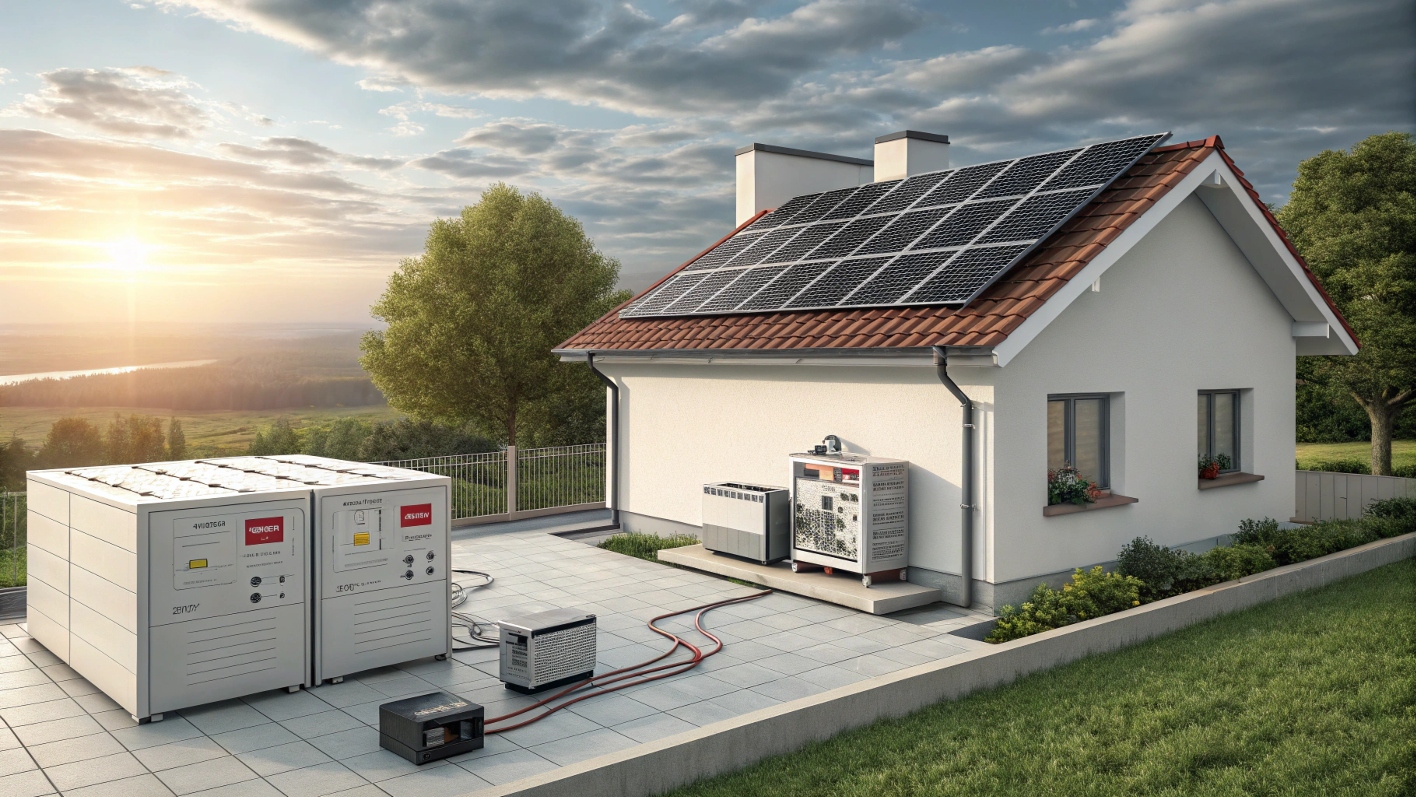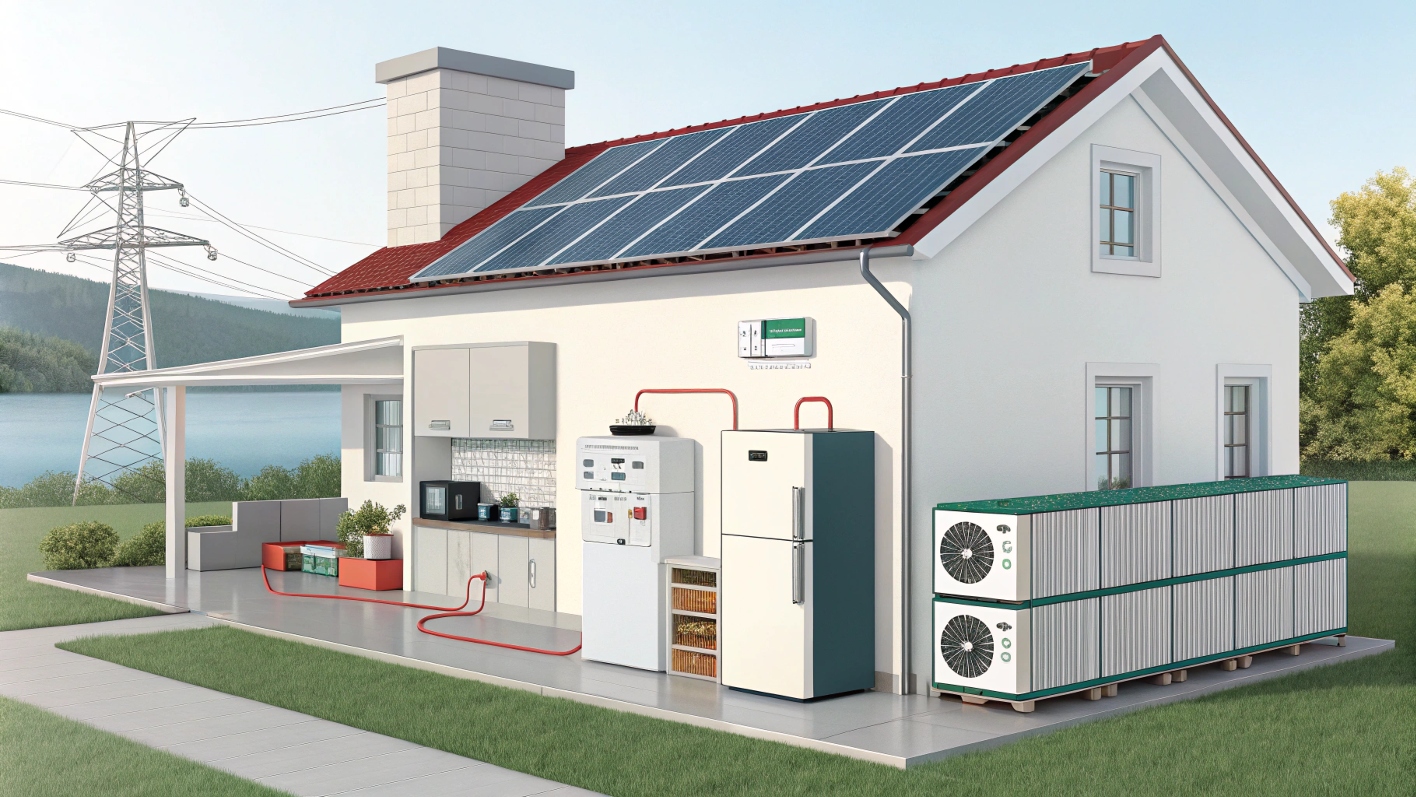快速答案
为什么使用锂离子太阳能电池进行储能?
A 锂离子太阳能电池 用于储能,因为它提供了:
- 高能量密度 紧凑型
- 使用寿命长 10 - 15年的周期
- 快速充电/放电 捕获峰值太阳的比率
- 深层排放 没有损坏 (80–90%的国防部)
- 最小维护 与铅酸相比
- 可扩展性 通过模块化设计
- 智能监视 并增强安全功能
1. 高能量密度
为什么重要: 空间通常受到住宅或商业设施的限制.
- 紧凑的足迹: 锂离子电池存储到 100 瓦时/公斤 或者更多, 与30–50 WH/kg相对于铅酸.
- 轻的: 易于处理和安装在墙壁或紧密的电池柜上.
圆滑, 节省空间的解决方案, 探索我们的 磷酸铁锂太阳能电池 模块.
2. 寿命长
为什么重要: 更少的替代者意味着较低的长期成本和浪费较少.
- 10–15年的服务 有3,000-5,000个完整周期
- 一致的能力保留-超过 80 % 经过数千个周期
将其与铅酸电池进行比较, 通常仅在类似用途的情况下仅持续3 - 5年.
3. 高往返效率
为什么重要: 最大化可用的储存能量会降低网格的依赖.
- 取决于 95 % 效率, 意味着在充电/放电期间损失的能量很少
- 铅酸系统通常在 70–80 % 效率, 浪费更多的太阳能收获
更高的效率意味着您产生的太阳能最终以有用的kWh结束.
4. 快速充电 & 深层排放
为什么重要: 捕获间歇性太阳峰并提供可靠的备份.
- 快速充电率 - 在阳光高峰时期迅速存储能源
- 深度放电能力 最多 80–90 % 国防部, 仅与 50 % 用于铅酸, 给您更多电池的额定容量
这种灵活性可确保您可以根据需要绘制和更换能量而不会损害细胞.
5. 低维护成本
为什么重要: 减少了在维护上花费的时间和成本.
- 没有浇水 或需要检查
- 无均衡费用 - 只是简单的充电/放电程序
- 最小的自我解雇, 因此,电池在空闲期间的充电时间更长
安装和忘记, 使您摆脱铅酸电池的常规保养.
6. 可扩展性 & 模块化
为什么重要: 您可以从小开始,并随您的需求增长.
- 模块化设计 允许并行添加或卸下电池模块
- 电压选项 (12 V, 24 V, 48 V) 匹配任何逆变器或离网设置
明年需要更多的容量? 只需添加更多的锂电池模块,而无需更换整个银行.
7. 智能监视 & 安全功能
为什么重要: 确保可靠的运营并保护您的投资.
- 内置电池管理系统 (电池管理系统) 平衡细胞并防止过度充电/过度递减
- 温度传感器 和 故障检测 提高安全性
- 远程监视 通过应用程序或Web门户进行实时诊断
保持了解您系统的健康和使用模式, 并在问题成为问题之前抓住问题.
8. 环保的 & 随着时间的流逝,成本效益
为什么重要: 更好地适合您的钱包和地球.
- 减少的替代者 减少旧电池的危险废物
- 效率更高 降低能源浪费和水电费
- 长期投资回报率: 尽管前期成本较高, 降低维护和延长的寿命使锂离子在其一生中储存的锂离子便宜
您最初投入更大的投资,但可以大大节省替代品, 能源损失, 和维护.
结论
锂离子电池提供无与伦比的组合 表现, 耐用性, 和 效率 用于太阳能存储. 从他们的 紧凑的设计 和 快速充电 到他们 寿命长 和 智能安全功能, 它们是现代太阳能系统的首选. 准备升级您的存储空间? 查看我们的 LifePo4太阳能电池 并完成 太阳能存储解决方案 可靠, 低维护功率备份.
常问问题
问: 锂离子电池比铅酸更好?
A: 是的. 他们提供更高的能量密度, 更长的寿命, 更快的充电速度, 更深的排放, 和更少的维护.
问: 锂离子太阳能电池持续多长时间?
A: 通常10–15年或3,000–5,000周期, 铅酸电池为3 - 5年.
问: 我可以稍后扩展锂离子电池库吗?
A: 绝对地. 它们的模块化设计使您可以并行添加更多模块, 增加容量而不改变电压.



